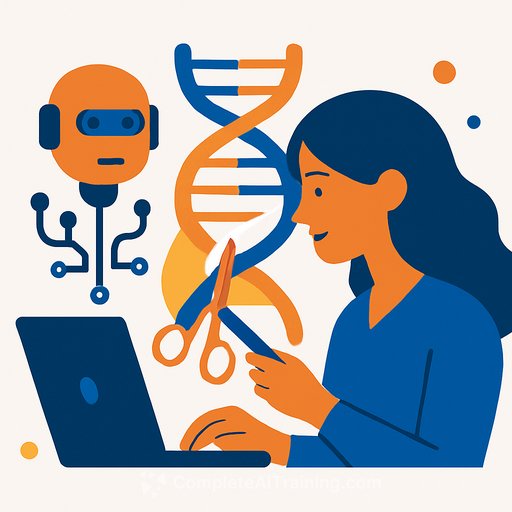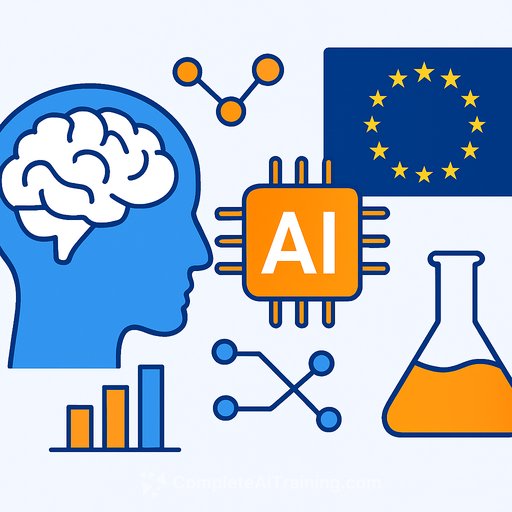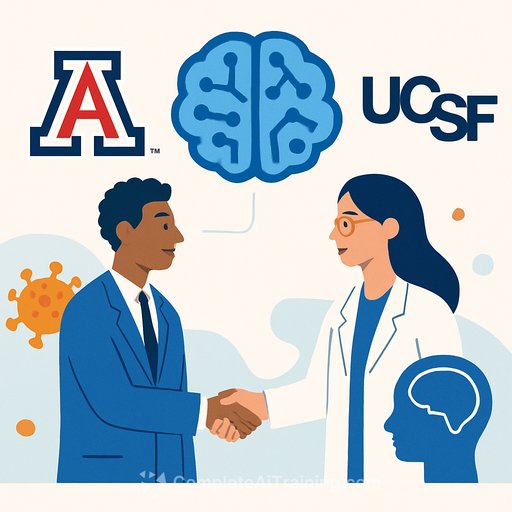Scientists Combine AI and CRISPR for Safer, More Accurate DNA Edits
Published: August 12, 2025
Original story from the University of Zurich
Credit: iStock.
Summary
Researchers at the University of Zurich have introduced Pythia, an AI-driven tool that predicts DNA repair outcomes following CRISPR cuts. This enables highly precise genetic edits with improved safety. The approach has been validated in human cells, frogs, and mice, showing promise for disease modeling, protein tracking, and the advancement of targeted gene therapies.
Key Takeaways
- AI-powered precision: Pythia forecasts DNA repair to guide accurate CRISPR edits and minimize unintended mutations.
- Broad validation: Effective in human cells, Xenopus frogs, and mouse brain cells.
- Therapeutic potential: Enables safer, targeted gene therapies, including treatments for neurological disorders.
AI Enhances Precision in CRISPR Gene Editing
CRISPR/Cas technology holds vast potential for precise DNA editing, including small mutations and whole gene integrations. However, maintaining genomic integrity is critical to avoid unintended genetic changes and side effects. While DNA double-strand breaks are usually repaired accurately, errors can occur during the repair process.
Scientists from the University of Zurich, Ghent University, and ETH Zurich developed Pythia to improve genome editing precision. This AI tool predicts how cells repair DNA after CRISPR-induced cuts, allowing researchers to design DNA repair templates that guide precise genetic alterations.
Thomas Naert, lead developer of the technology, explains that these AI-designed templates act like molecular glue, directing cells to make exact genetic changes. Initial tests in human cell cultures confirmed high accuracy in gene edits and integrations. The method was also validated in the tropical frog Xenopus and in mouse brain cells, demonstrating its versatility across species and cell types.
Predicting DNA Repair Patterns Through AI
DNA repair is not random — it follows recognizable patterns. Pythia learns these patterns using machine learning to forecast how cells will fix CRISPR-induced breaks. This prediction enables scientists to select the most efficient way to make precise genome changes while avoiding unwanted outcomes like gene disruption.
The researchers simulated millions of editing outcomes, focusing on how to optimize edits based on the cell’s likely repair mechanisms. Beyond point mutations and gene insertions, the method can fluorescently label proteins, facilitating direct observation of protein functions in healthy and diseased tissues.
This approach works efficiently even in non-dividing cells, such as those found in the brain, expanding its potential applications.
Foundation for Precise Gene Therapies
Named after the Oracle of Delphi’s high priestess, Pythia forecasts gene editing results with remarkable accuracy. Soeren Lienkamp, senior author and professor at UZH and ETH Zurich, compares it to meteorologists using AI to predict weather. Reliable prediction is essential for gene editing to become safe and clinically viable.
The combination of large-scale AI prediction and biological validation creates a feedback loop that enhances both modeling and experimentation. This dynamic is particularly valuable for developing precise gene therapies.
This method opens new avenues for studying genetic diseases and crafting safer, more effective gene therapies, including those targeting neurological disorders.
Reference: Naert T, Yamamoto T, Han S, et al. Precise, predictable genome integrations by deep-learning-assisted design of microhomology-based templates. Nat Biotechnol. 2025. doi: 10.1038/s41587-025-02771-0.
Your membership also unlocks:






